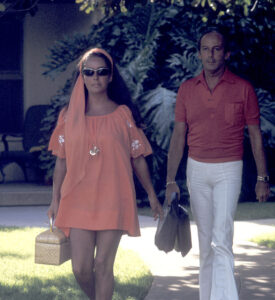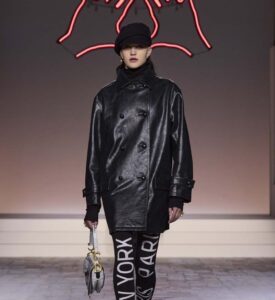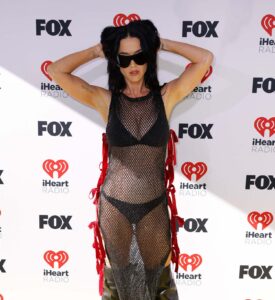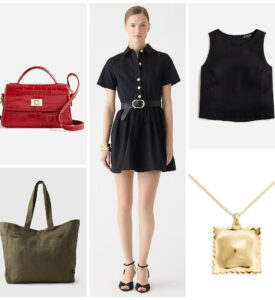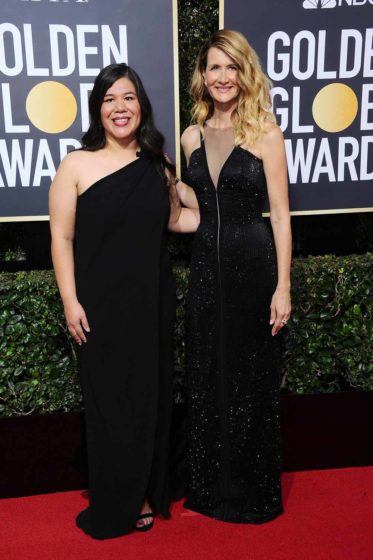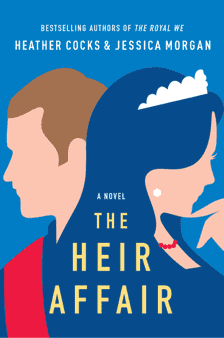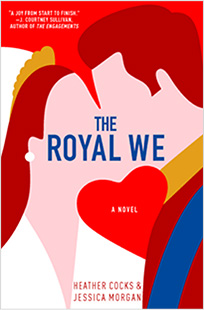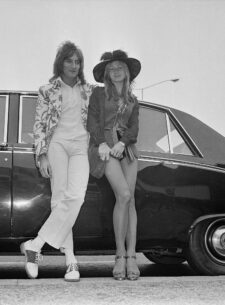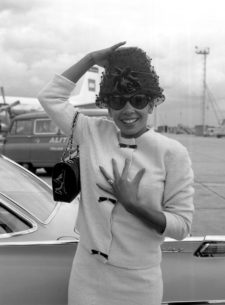Michelle Williams apparently got the idea for a handful of actresses to bring activists they know and love to the Globes — and on the red carpet — with them. It’s a wonderful way to shine a very powerful spotlight on the causes they hold dear, and we’d like to showcase those women here in a pod all their own, in what we think is an appropriate way to kick off coverage of last night’s unique event.
Going into the Golden Globes, a call was put out far and wide for celebs to attend in black as a response to the on-going sexual assault and harassment news that has rocked Hollywood since the Weinstein news broke. Activism and red carpet fashion haven’t twined this tightly in a long time, if ever: That call was answered by almost every single woman in attendance. Everyone is going to have their own complicated feelings about the efficacy or message of such a protest. The brilliant Robin Givhan of the Washington Post said, “It reads like the proper response to sexual harassment is to change one’s attire,” as if the onus is once again on women to alter themselves in order to be heard and taken seriously, but conversely, the celebs supporting it promised that it signified the death of the past inequalities, or the rebirth of an industry, or simply a show of solidarity — and yes, perhaps even a way of forcing a more incisive conversation on the red carpet. However, E! spent so much time patting itself on the back for not asking about the gowns that it failed to recognize how few important questions the host did pose. (The best moments were when they just let certain celebrities talk, like Debra Messing, the first of two people — the other was Eva Longoria; SJP mentioned this obliquely but with no specifics — to mention on E! how the network’s Catt Sadler quit over gender-based pay discrepancies.)
Let’s talk about those fashion credits, though. One result of this clarion call was an opening of the floodgates: Thinkpiece upon thinkpiece piled up about what a vapid exercise in female objectification the red carpet is, as if people have been itching to unload about how lame it is to care about clothes and how pathetic people are if they want to look nice or give breath to the topic in any way at all. (My knee-jerk feeling is: Do you not want to look nice at your office function? Your New Year’s Eve party? Your wedding? Does that make any person vapid?) Poisonous undercurrents of that line of thinking imply that women represent themselves and their ENTIRE GENDER poorly by getting dressed up nicely for an event at which they know they’ll be photographed — and that as objectification goes, they’re Asking For It if they do. That is a dart no one aims at a man who hires, say, Ilaria Urbinati to teach him how to wear funkier suits.
We discussed our feelings about this with Vox, but suffice to say we are not of the opinion that writing about the fashion on this night is vapid, stupid, objectifying, dismissive, or anything else. And we vehemently believe that fashion credits are a vital part of it. Hard work went into not just the dresses, but the glamour, which was no less on display; if an actor or actress spends hours selecting an outfit and glamming up for the ceremony, it is not shallow to want to know more. Rather, it’s an acknowledgment of the labor that went into each look, much of which came from women. On this night, designers who lent their dresses in support of #WhyWeWearBlack were not given the credit for it; stylists who donated their fees to #TimesUp and other causes went without mention. Per Givhan in the Post:
Specifically, [the carpet] was filled with custom-made dresses crafted by design houses just for the occasion. And mostly, they received no on-air credit. Messing, for instance, was wearing a custom ensemble by Christian Siriano. But when she stopped for her big interview with E!, Rancic grandly announced that she would not be asking Messing “who she was wearing.” And Messing responded with an audible sigh of relief and a “thank you,” because being asked to acknowledge the designer who collaborated with you on the evening is such a terrible burden.
Calvin Klein received no on-air credit that I heard for dressing Millie Bobby Brown and Sarah Paulson, despite donating to #TimesUp. Ditto Prabal Gurung, who dressed Kerry Washington but went unmentioned. Beyond credit for the work, and the dresses that already likely would’ve been free, it’s respectful to the industry — and to the fact that nobody went so far as to eschew these “superficial” cogs in the wheel — to acknowledge people’s work, especially when that work is sampled free of charge. Much as we credited Givhan’s quote above rather than referring to her as “a writer.”
It’s always been our belief that one can be interested in fashion, and makeup, and all the associated elements, while also being a serious person who cares about the world and above all does not support sexual harassment, abuse, inequality, and their wretched kin. One can critique art — and fashion is art; the red carpet is a series of carefully crafted portraits with teams of artisans behind each star — without being anti-woman or anything else. So yeah, we’re going to cover the Globes today. We will attempt to do so with sensitivity, but we won’t pull our fashion punches, either. Because in the grand scheme of things, muting each other is not the point. Thanks, and we love you.

